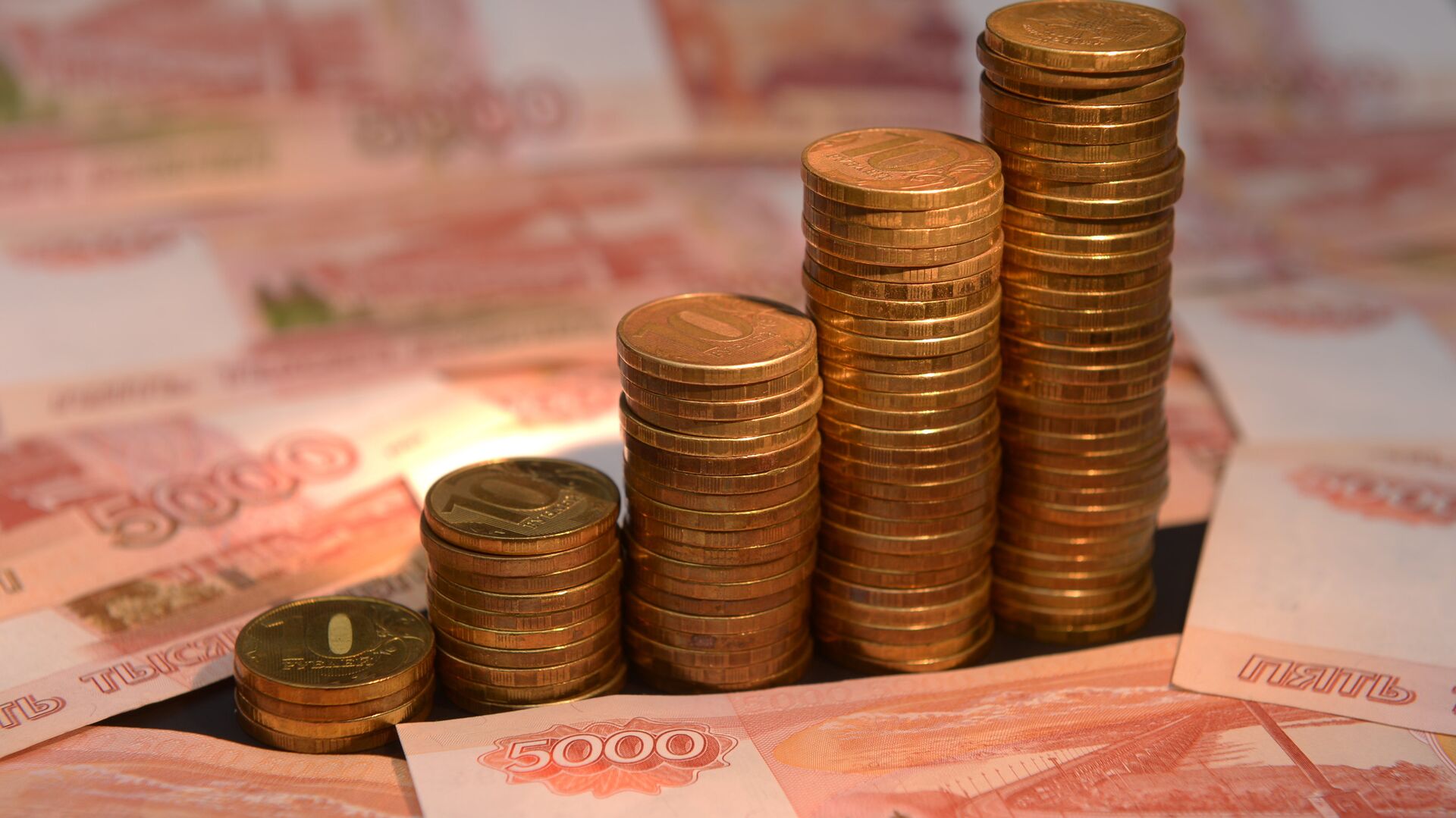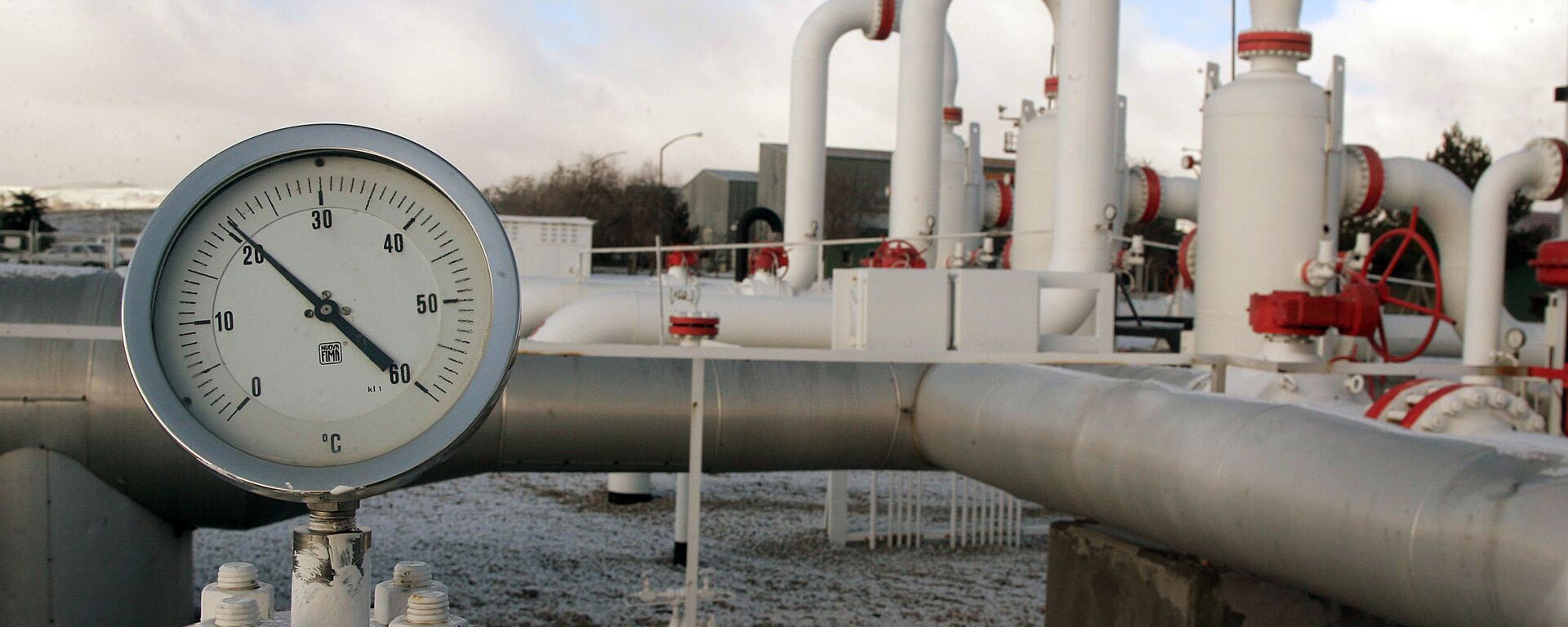https://sputnikglobe.com/20220501/russia-simplifies-tax-registration-for-foreign-firms-to-facilitate-ruble-payments-for-gas-1095185558.html
Russia Simplifies Tax Registration for Foreign Firms to Facilitate Ruble Payments for Gas
Russia Simplifies Tax Registration for Foreign Firms to Facilitate Ruble Payments for Gas
Sputnik International
MOSCOW (Sputnik) - Russian President Vladimir Putin signed on Sunday a law simplifying tax registration of foreign organisations opening accounts in Russian... 01.05.2022, Sputnik International
2022-05-01T14:53+0000
2022-05-01T14:53+0000
2022-05-01T14:53+0000
russia
taxes
gas
ruble
https://cdn1.img.sputnikglobe.com/img/104425/20/1044252055_0:160:3077:1890_1920x0_80_0_0_66e0401e4ebafc516bf80bcc0cb6362f.jpg
The relevant document was published on the official portal of legal information. According to the law, foreign firms will be registered with the tax authorities at the request of a Russian credit institution in which they will open their accounts.A source in the Russian parliamentary committee on budget and taxes said that the new rules will greatly simplify the procedures for tax registration and opening of accounts, especially given that foreign firms are now required to pay for Russian gas in rubles.In addition, the law eases conditions for the recognition of a company under sanctions, which was re-registered in a special administrative region of Russia, as an international holding company.The law goes into effect the day of its official publication, but the rules regarding international holding companies and revised tax declarations will come into force in a month.The Russian president has also signed a law on ratification of the protocol amending the treaty of the Eurasian Economic Union (EAEU). The protocol provides for the possibility of granting a 180-day VAT payment deferral for imports of goods from the EAEU member states to Russian free and special economic zones.To date, the protocol has been also ratified by Armenia and Belarus.
https://sputnikglobe.com/20220430/germany-refuses-to-pay-for-russian-gas-in-rubles-1095167510.html
Sputnik International
feedback@sputniknews.com
+74956456601
MIA „Rossiya Segodnya“
2022
Sputnik International
feedback@sputniknews.com
+74956456601
MIA „Rossiya Segodnya“
News
en_EN
Sputnik International
feedback@sputniknews.com
+74956456601
MIA „Rossiya Segodnya“
Sputnik International
feedback@sputniknews.com
+74956456601
MIA „Rossiya Segodnya“
taxes, gas, ruble
Russia Simplifies Tax Registration for Foreign Firms to Facilitate Ruble Payments for Gas
MOSCOW (Sputnik) - Russian President Vladimir Putin signed on Sunday a law simplifying tax registration of foreign organisations opening accounts in Russian banks in accordance with the requirement to pay for Russian gas in rubles.
The relevant document was published on the official portal of legal information. According to the law, foreign firms will be registered with the tax authorities at the request of a Russian credit institution in which they will open their accounts.
A source in the Russian parliamentary committee on budget and taxes said that the new rules will greatly simplify the procedures for tax registration and opening of accounts, especially given that foreign firms are now required to pay for Russian gas in rubles.
In addition, the law eases conditions for the recognition of a company under sanctions, which was re-registered in a special administrative region of Russia, as an international holding company.
The law goes into effect the day of its official publication, but the rules regarding international holding companies and revised tax declarations will come into force in a month.
The Russian president has also signed a law on ratification of the protocol amending the treaty of the Eurasian Economic Union (EAEU). The protocol provides for the possibility of granting a 180-day VAT payment deferral for imports of goods from the EAEU member states to Russian free and special economic zones.
To date, the protocol has been also ratified by Armenia and Belarus.



